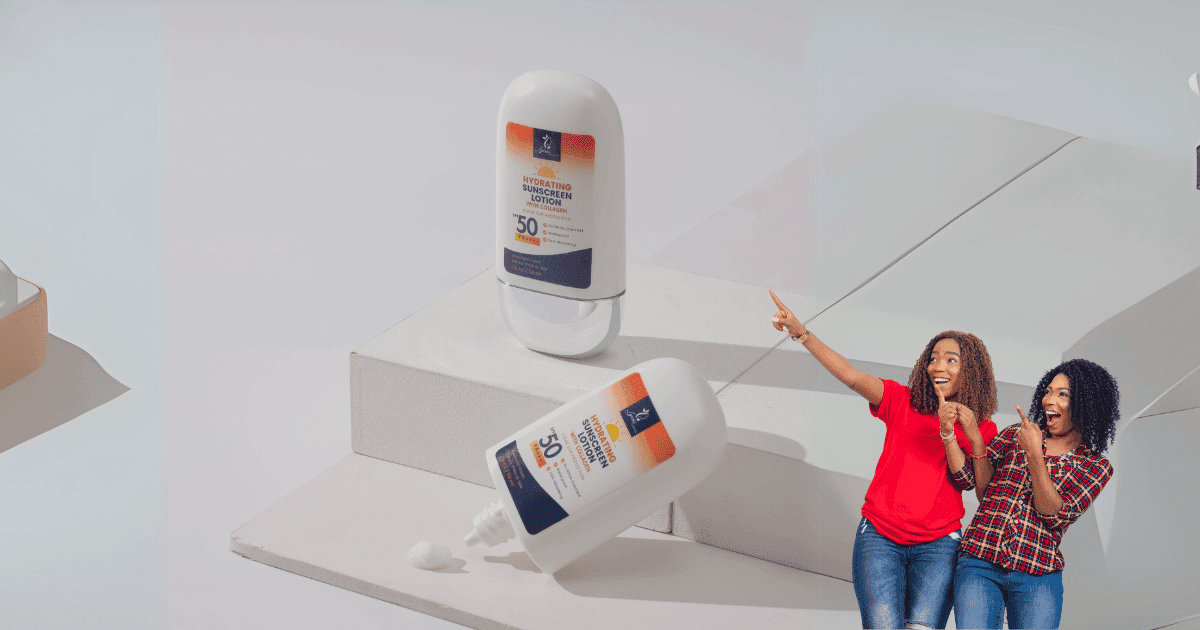
How Sunscreen Prevents Skin Cancer and Its Importance for People of Color
Share
Lyons Choice Sunscreen is a cornerstone in the fight against skin cancer, a disease caused by the uncontrolled growth of skin cells due to DNA damage often linked to ultraviolet (UV) radiation. Despite common misconceptions, people of color, including Black individuals, also need to use sunscreen. This article explores how sunscreen prevents skin cancer and addresses its significance for people with darker skin tones.
How Sunscreen Works to Prevent Skin Cancer
Sunscreen contains active ingredients that either absorb, reflect, or scatter UV radiation, protecting the skin from harmful rays. UV radiation is divided into two main types:
1. UVA Rays: These penetrate deeper into the skin, causing premature aging, DNA damage, and contributing to skin cancer.
2. UVB Rays: These primarily affect the outer layer of the skin, causing sunburn and playing a significant role in the development of skin cancers like basal cell carcinoma, squamous cell carcinoma, and melanoma.
Sunscreens are labeled with a Sun Protection Factor (SPF), which indicates their effectiveness against UVB rays. Broad-spectrum sunscreens offer protection against both UVA and UVB rays. By creating a barrier against UV radiation, sunscreen reduces the risk of DNA mutations that can lead to cancer.
The Myth That People of Color Do Not Need Sunscreen
A persistent myth suggests that people of color, especially those with darker skin, do not need sunscreen because of their natural melanin. While melanin does provide some protection by absorbing UV radiation, it is not enough to eliminate the risk of skin damage or cancer entirely.
Natural Protection from Melanin
Melanin acts as a natural sunscreen to some extent, reducing the likelihood of sunburn. For instance, individuals with darker skin have an SPF of about 13.4 compared to 3.4 for lighter skin. However, this does not mean they are immune to UV-induced damage. Melanin’s protective effects are limited, and prolonged UV exposure can still lead to:
• DNA damage.
• Hyperpigmentation.
• Premature aging.
• Increased risk of skin cancer.
Skin Cancer in People of Color
Although skin cancer rates are lower in people of color compared to those with lighter skin, it is often more deadly. Studies show that melanoma in people of color is frequently diagnosed at later stages, leading to worse outcomes. This disparity is partly due to the misconception that darker skin is immune to the disease, resulting in delayed detection and treatment.
Why Sunscreen is Important for People of Color

Using sunscreen offers several benefits for people of color, beyond reducing the risk of skin cancer:
1. Prevention of Hyperpigmentation
People of color are more prone to hyperpigmentation, a condition where patches of skin become darker than the surrounding areas due to an overproduction of melanin. UV exposure exacerbates this condition, and sunscreen can help prevent it by protecting the skin from further damage.
2. Reduction of Premature Aging
UVA rays contribute to photoaging, characterized by wrinkles, sagging, and uneven skin tone. Sunscreen helps slow down these effects by shielding the skin from chronic sun exposure.
3. Protection from Skin Cancer
While the overall risk of skin cancer is lower, people of color are not immune. Sunscreen significantly reduces the likelihood of developing UV-related skin cancers and ensures better skin health.
4. Evens Skin Tone
Uneven skin tone and dark spots caused by sun damage are common concerns for people of color. Regular sunscreen use prevents the worsening of these conditions.
Choosing the Right Sunscreen for Darker Skin
For people of color, finding a sunscreen that doesn’t leave a white cast can be challenging. The following tips can help:
• Look for Tinted Sunscreens: These often blend better with darker skin tones and offer a more natural finish.
• Mineral vs. Chemical Sunscreens: Mineral sunscreens (with zinc oxide or titanium dioxide) may leave a white residue, but newer formulations are improving. Chemical sunscreens absorb UV rays and are typically more transparent.
• SPF of 30 or Higher: Dermatologists recommend using a sunscreen with an SPF of at least 30, regardless of skin tone.
Also Read:
Addressing Common Barriers to Sunscreen Use
Several factors contribute to the underuse of sunscreen among people of color:
• Lack of Awareness: Many believe they do not need sunscreen, emphasizing the importance of education about UV risks for all skin types.
• Cultural Norms: Some cultural practices and aesthetics may discourage the use of sunscreen.
• Product Accessibility: Limited availability of products suitable for darker skin tones can be a barrier.
Addressing these issues through targeted education and the development of inclusive products is essential.
Sunscreen is a vital tool in preventing skin cancer and maintaining overall skin health. While darker skin provides some natural protection against UV radiation, it is not enough to eliminate risks. People of color, including Black individuals, benefit from sunscreen in multiple ways, from reducing skin cancer risk to preventing hyperpigmentation and premature aging. By debunking myths and improving accessibility to suitable products, we can ensure that everyone, regardless of skin tone, is adequately protected from the harmful effects of the sun.
